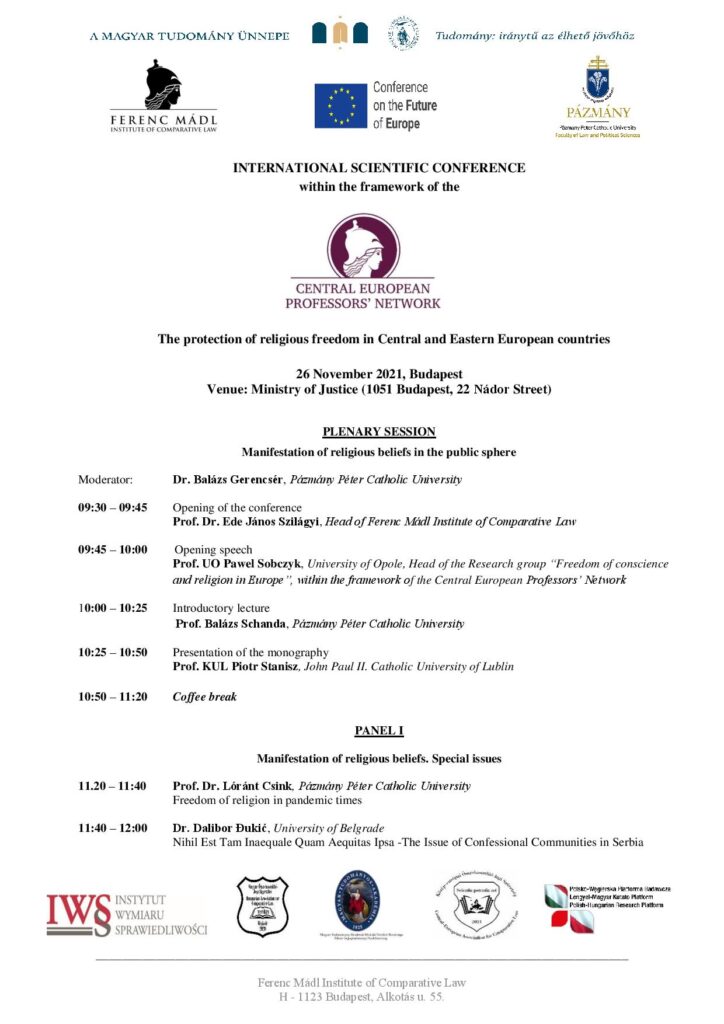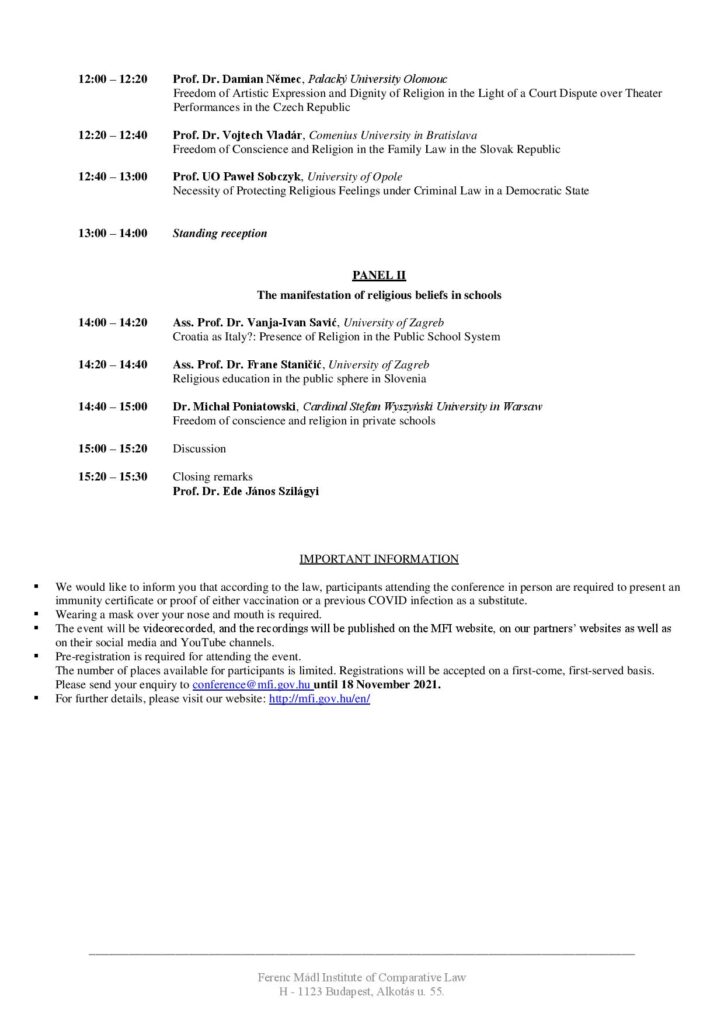The Central European Professors’ Network, consisting of four research groups, launched its activities on 1 January 2021 to conduct research on a great variety of issues with regard to seven Central European countries (Hungary, Poland, Czech Republic, Croatia, Slovakia, Slovenia, Serbia). The Professors’ Network organises events with the primary aim to draw attention of the European citizens to the topics which are important and significant in connection with the future of Europe, in particular of Central Europe.
One of the research groups dealt with the normative aspect of the possibility for manifesting beliefs through religious symbols in the European countries concerned. Furthermore, the group focused on the comparative legal analysis of the impact of the presence of religious symbols in public spaces.
The conference on the above issue will also function as a book launch of the book „Religious Symbols in the Public Sphere – Analysis on Certain Central European Countries” written by the members of the research group. Therefore, besides the conference presentations, the comparative legal book will also be presented as the main achievement of the research team. This book is a gap-filling contribution in the field of comparative constitutional law and a publication which sheds light on the most important Central European aspects of the issue.
The main organisers of the event are the Ferenc Mádl Institute of Comparative Law, the Hungarian Association for Comparative Law and the Central-European Association for Comparative Law.
Summary Report on the International Scientific Conference[1]
The scientific conference ‘The protection of religious freedom in Central and Eastern European countries’ was held on 26 November 2021 in the Ministry of Justice of Hungary as the third element of the closing events of the Central European Professors’ Network in 2021. The event hosted a book launch as well: The members of the research group titled ‘Freedom of conscience and religion in Europe’ presented their book, ‘Religious Symbols in the Public Sphere’ which summarizes their results. Professor Sobczyk, the head of the research group introduced the two main issues what the research group focused on: ‘The presence of religious symbols in public space’ and the ‘protection of religious belief in East-Central European countries’.
The event started with the plenary session titled ‘Manifestation of religious beliefs in the public sphere’. Prof. Dr. Ede János Szilágyi (University of Miskolc), the head of Ferenc Mádl Institute of Comparative Law (hereinafter: FMI) in his introductory speech presented the outcomes and results of the Central European Professors’ Network, which was established to create and organise a Central European professional network through closer partnership. As Dr. Judit Varga, the Minister of Justice of Hungary pointed out, the initiative also aims at ‘[…] establishing a professional community and knowledge base that can present a credible national, conservative, Christian-democratic alternative to the liberal and federalist direction.’
The plenary session continued with the speech of Prof. UO Pawel Sobczyk (University of Opole), Head of the Research group ‘Freedom of conscience and religion in Europe’, who introduced the members of the research group, namely Prof. Dr. Lóránt Csink (Pázmány Péter Catholic University, Budapest), Dr. Dalibor Đukić (University of Belgrade), Prof. Dr. Damian Němec (Palacký University Olomouc), Prof. Dr. Vojtech Vladár (Comenius University in Bratislava) Ass. Prof. Dr. Vanja-Ivan Savić (University of Zagreb), Ass. Prof. Dr. Frane Staničić (University of Zagreb), Dr. Michał Poniatowski, (Cardinal Stefan Wyszyński University in Warsaw). Professor Sobczyk introduced the two main issues what the research group focused on, namely: ‘the presence of religious symbols in public space’ and the ‘protection of religious belief in East-Central European countries’. The research group analysed the case law of constitutional courts, the European Court of Human Rights and the case-law of the Court of Justice of the European Union. The main findings of the research group can be summarized as follow: (i) The use of these symbols in the public spheres is part of the tradition in the countries that were subject of the research. (ii) Unlike in some European countries, there are no regulations restricting the right to wear specific items of clothes or insignia that are related to an individual’s religion.
After the concluding remarks of Professor Szilágyi, the audience was called to take part in the discussion part.
[1] Authors: Nóra Béres* & György Marinkás**
*Researcher, Department of Public Law, Ferenc Mádl Institute of Comparative Law, nora.beres@mfi.gov.hu; assistant lecturer, Department of International Law and Comparative Law, Institute of European and International Law, Faculty of Law, University of Miskolc, jognora@uni-miskolc.hu
**Researcher, Department of International and EU Law, Ferenc Mádl Institute of Comparative Law, gyorgy.marinkas@mfi.gov.hu; senior lecturer, Department of European Law and International Private Law, Institute of European and International Law, Faculty of Law, University of Miskolc, joggyuri@uni-miskolc.hu



